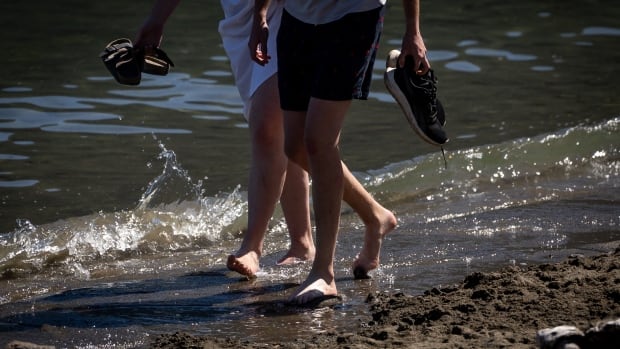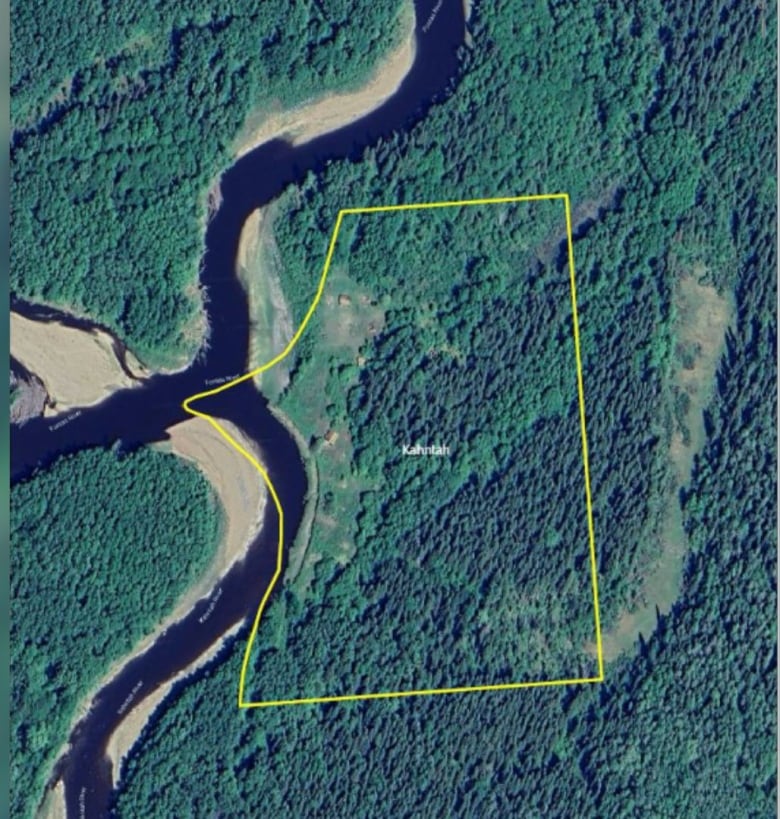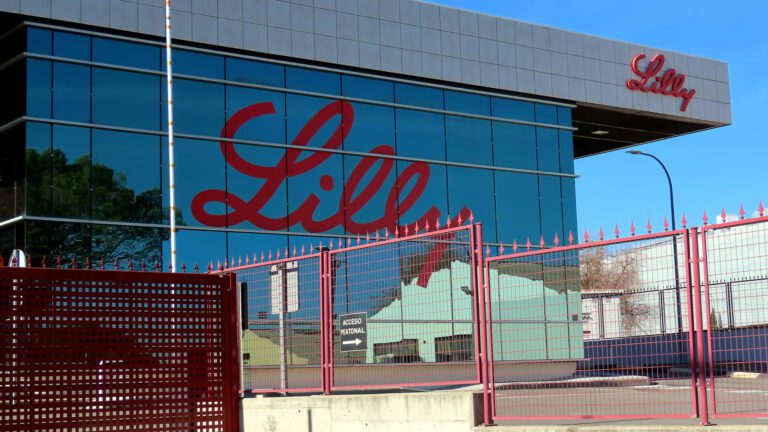
Health officials have responded to dozens of heat-related calls in recent days, as about 20 heat warnings are still in effect for some parts of British Columbia.
Warnings have been lifted across Vancouver Island, the South Coast and the Lower Mainland but remain in place for the southern Interior, where high temperatures are expected to last into Thursday.
Nearly 40 communities set daily temperature records across B.C. on Tuesday, according to Environment Canada. The temperature hit 40.6 C in Kamloops, shattering the 38.6 C record set in 2015. Kelowna also set a new high of 39.3 C.
Lytton, which is often the hottest place in Canada this time of year, hit 42.5 C.
In an email to CBC News, B.C. Emergency Health Services said it had recorded an uptick in calls for medical emergencies related to the heat.
From Friday to Monday, it said, it responded to 78 “heat-related patient events” in all regions of the province.
The hot weather along with lightning has prompted an evacuation order for a community in northeastern B.C.
The Fort Nelson First Nation issued a wildfire evacuation order on Tuesday for a remote riverside reserve, telling residents and visitors they must immediately leave by boat.
The order covers the Kahntah Reserve, about 115 kilometres southeast of Fort Nelson.

Highway 77 — a 138-kilometre road that starts just northwest of Fort Nelson and runs north to the Northwest Territories — closed due to a wildfire on Tuesday evening and remains closed as of early Wednesday, according to DriveBC. The traffics service said it would provide an update on the highway closure at noon PT.
Air quality advisory
With the heat set to linger in many parts of the province, paramedic public information officer Brian Twaites encouraged people to do what they could to cool living areas, including covering windows and turning on fans or other available cooling devices indoors, and wearing hats, sunscreen and staying in the shade outdoors.
On Tuesday, Vancouver’s Social Run Club cancelled a group run in order to follow that advice.
“I think … for most of our runners, it’s exhausting to think about running in this heat,” said the club’s Geoff Scoates.
“When we cancel a run like this, it sets a tone that it’s OK to listen to your body and not go out when there’s extreme weather,” he said.
Metro Vancouver is also currently under an air quality advisory for ground level smog, which will remain in place until further notice.
Dr. Michael Koehle from the University of B.C. School of Kinesiology said exercising during a heat wave risks exertional heat illnesses ranging from “severe and dangerous” heat stroke to milder heat exhaustion with symptoms including headaches, fatigue and dizziness.
“Typically, you can manage that by stopping exercise, cooling down, and having some cool fluids to drink,” said Koehle.
He said it was important to check the humidex level, which takes into account of both temperature and humidity, before exercising outdoors. Most people usually feel uncomfortable when the humidex is above 30, he said.
Koehle said that unlike smoke-related pollution, the smog now in Metro Vancouver resulted from ozone, a gas created on hot days when sunlight reacts with nitrogen dioxide and volatile organic compound.
Ozone can irritate lungs, making people cough, feel short of breath or tight in the chest, said Koehle. He said smog can be highest on hot sunny days between noon and early evening, and air quality improves in the early morning or late evening.
Campfire ban coming soon
A provincewide campfire ban is also coming into effect at noon on Friday, with the sole exception in B.C. being the Haida Gwaii Forest District.
The ban is being put into place because of the risk of increased wildfire, as a cold front is forecast to sweep across northern B.C. on Wednesday bringing strong winds, thunderstorms and the potential for dry lightning.
Southern parts of B.C. could also receive wind and dry lightning, the B.C. Wildfire Service said.






